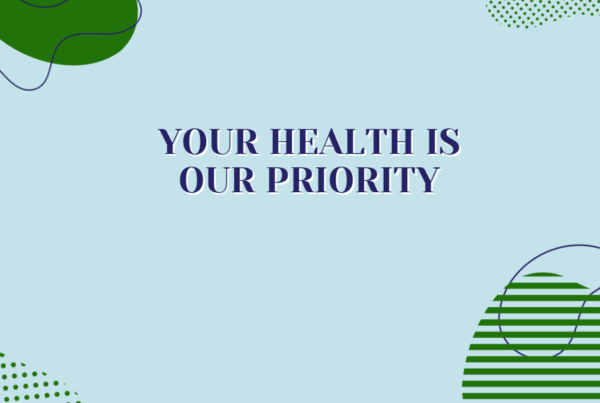By Linn Thorstensson.
From late October until the beginning of January is a time that tends to be particularly challenging to navigate if you have a complicated relationship with food, eating and your body.
We are surrounded by a lot of food all the time and diet talk amplifies this time of year. There are more social gatherings and dresses / pants to get into. Both of which can be stressful in their own right.
Then there are the pressures that come with Christmas and the Holiday Season. The pressure to: Look perfect, to cook the best dinner, to host a lot of people or even just spending a lot of time with family because it is what is expected.
It is safe to say that this time of year can be overwhelming.
If you have been dieting for the weeks or months leading up to this time of year, you may initially be feeling a lot of guilt for adding some of these festive foods back into your diet. Or you may be feeling relieved to finally be finished with your diet and able to eat freely.
If you find that food is the best, or sometimes the only way, to deal with anxiety, stress, overwhelm, loneliness or any other emotion that feels challenging, you might find yourself eating more than you typically would, or think you should. Only to be followed by guilt, shame and thoughts of another diet or desire to restrict food.
If this sounds like you, please know that there is nothing wrong with you. Diet Culture teaches all of us that using food to manage our emotions and nervous systems is bad. But sometimes it is ok to use an old coping strategy, especially if that is what is available to you.
Of course, it can be useful to have more than one coping tool in your toolbox, so see if there are other ones you can develop or practice, to support you during this time.
Anticipated restriction drives binge eating
There is something around the Christmas period and those days in-between Christmas and New Year that can exacerbate any difficulties you may experience around food, especially if you identify as someone who is prone to cycles of dieting and binge eating.
There’s like this looming sense of restriction in the air.
Maybe it is because of all the “New Year – New You” stuff, a sense of a fresh start and a time we will finally do all the things we said we could, but didn’t we didn’t get to this year.
I believe this cultural ‘energy’ plays into how we navigate food, our relationship with food and how we’re eating, especially at this time of the year.
It is like we collectively think “It is The Holiday Season, let’s just stuff ourselves because in January I’ll start a new diet.”
It feels like a cultural anticipation of fresh restrictions. Except restriction drive binge eating. Sometimes even the mere thought of impending restrictive eating can drive binge eating behaviours.
Avoiding Diet Talk helps everyone
What I mean by Diet Talk is all the conversations that are happening around diets and dieting. Topics such as the latest one trending, the one people are thinking about doing, the foods someone has removed or is planning to restrict from their diet. Basically, anything that has to do with any kind of food restriction and/or intentional weight loss pursuits.
If you are somebody who is looking after your health which happens to be restricting some foods and that’s working for you, that’s all good. If it comes from a place of self-care, then there’s nothing wrong with that.
And it is helpful not to preach that to everyone else, because you don’t know how that’s going to land for the person next to you. If they are navigating through a restrictive eating disorder, even just hearing somebody saying how they have cut out X food or food group might just reinforce the eating disorder voice saying, “This food is bad and you shouldn’t have it”. Whereas for them, they have absolutely no issues with X food, so can be eating it just fine.
Any kind of conversations around being “good” or “bad” with food, doesn’t tend to be helpful either. When we place moral values on food, we are more likely to internalise these feelings when eating. It helps all us all, when we stop moralising food, and begin to listen to which food actually work for our unique bodies.
Refrain from body comments
Then there’s body comments – commenting on other people’s bodies. This may be more likely to happen if we have to spend a lot more time with family members, relatives or even colleagues that comment on people’s bodies, than we normally would.
Research has shown that if you’re on the receiving end of a lot of body comments, and engage in negative self-talk (who doesn’t?!) about our own bodies, it tends to affect your body image negatively. Moral of the story, if you are unkind to your body (and / or if others are) you’re more likely to feel bad about your body. Makes sense, eh.
I do wonder sometimes is this is a chicken-and-an-egg kind of situation insofar that when you don’t feel that good about your body, you are more prone to talk negatively about yourself. And then the more you engage in that talk, the worse you feel. It it’s like a kind of a slippery slope.
Maybe it’s worth to be really paying attention to the conversation you have with yourself about your body, and working on not engaging in it, even when you are not in a place where you particularly like what your body look like or how it feels, speaking more kindly towards yourself can help stop the compounding effect of it.
Five things to help you navigate the Christmas season:
1. You don’t need to go on another diet in January.
Taking the pressure off yourself in this way can actually reduce any over-eating during the holiday season. Restriction drives binge eating, and if you are not planning on restricting food anytime soon, you will have more space to make food choices that works for you and your body. Your body is incredibly wise and knows that there is no need to eat everything in sight, when there will be more food available later.
2. Eat regular meals and snacks.
Whether you are in active recovery from an eating disorder or you are trying to break free from years of dieting, regular eating is always helpful. It is all too easy to end up skipping meals to “compensate” for parties, drinking or going to dinner events, but this tends to backfire. Remember, restriction drives binge eating.
Eating regularly and adequately helps you remain in charge and be less likely to find yourself in a situation where you feel out of control hungry.
3. Set boundaries with food and body talk.
If you find yourself in situations or environments where food and body talk is intense, walk away or take a break. Other times it may be possible to politely (or strongly) set a boundary with the person that it is not a topic that you are interested in talking about or engaging with. You may or may not have the bandwidth to explain why, either way take good care of your own needs.
4. Wear clothes that make you feel good and that fit your here and now body.
It is easy to underestimate how much ill-fitting clothes can affect our body image in a negative way. When you have underwear that pinches or rubs, or waistbands that digs into your waist, it is uncomfortable and truly not selfcare. I know Diet Culture teaches us that wearing clothing that is slightly too small can serve as a “motivator”, but truly, you deserve to be comfortable and to live your life without your brain space taken up with this kind of physical discomfort.
5. Remind yourself, as often as you need, that you and your body are worthy of kindness and care.
Your here-and-now body deserves food, rest, movement and comfort. It deserves kind words from you, even if you don’t like what it looks like. It needs food, every day, several times a day, even if you are not exercising and even if you ate lots the day before. You are worthy of kindness and care.
Linn Thorstensson is a registered Nutritional Therapist who offers nutrition counselling at Irish Counselling Online.
If you would like to book an appointment with Linn please visit:
#OnlineCounseling #PersonalGrowth #MentalHealthSupport #TherapeuticJourney
#ConvenienceOfTherapy #PrivacyInCounseling #AccessibleMentalHealth
#SpecializedCounseling #AffordableTherapy #ConsistencyInCare #mentalhealth
#onlinecounselling #counsellingonline #wellbeing #selfcare #therapy #virtualtherapy
#digitalhealth #personalgrowth #accessibility #convenience #comfort #anonymity
#specializedsupport #affordablecare #mentalwellness #emotionalhealth #mindfulness
#selfdiscovery #selfimprovement #eatingdisorders #disorderedeating





